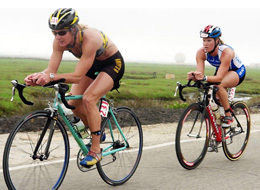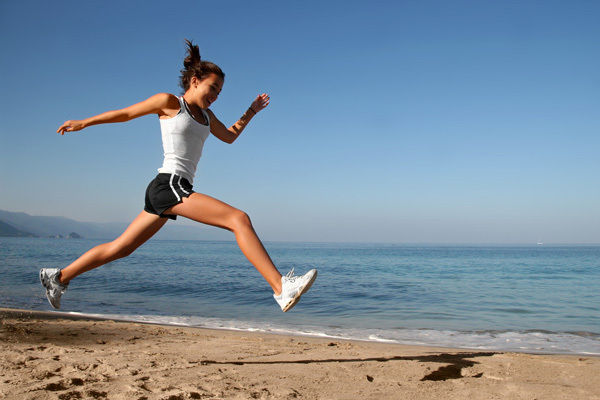
Even before I read Kate Dailey’s Newsweek post, “From Excess to Exercise: Group Helps Men and Women Live Sober Through Sweat,” I was a firm believer in group exercise as a way to treat addiction. For a variety of different reasons:
- The bond and community element is much like those that form in 12-step groups,
- The exercise itself has an antidepressant effect: the dopamine release can help to minimize the craving for alcohol and drugs,
- A kind of discipline is learned that will benefit the recovery from addiction
- A sense of empowerment is achieved.
I relied on group exercise just as much as my meetings when I was newly sober. A few of us would take long bike rides on the weekends that helped me grieve the loss of my best friend (liquor). I look back with fondness on those afternoons, when a dozen of us would bike 20 miles to a pancake place where we’d consume the calories we had just worked off. I don’t know if it was the dopamine high or the group support, but those bike rides gave me hope that my life didn’t have to be stoic and boring just because I was going to stay out of bars.
His research on rats shows that access to exercise reduces the appeal of cocaine. “Vigorous exercise increases dopamine concentrations in the brain in the same sections that are affected by cocaine,” he says. “Exercise mimics a lot of the effects of the drugs.” Whether this mimicry alone is enough to help wean addicts off their addiction has yet to be established, but it’s clear that there’s far more to Phoenix’s appeal than brain chemistry.
But the group is about much more than exercise. The social dynamic hopes to replace some of the social withdrawal many addicts feel once they get sober.
Writes Dailey:
Groups like Phoenix are just what those committed to sober living need, says Kitty Harris, director of the Center for the Study of Addiction and Recovery at Texas Tech University. “When people are actively using drugs and alcohol, they don’t care about taking care of their bodies, so getting into sports like this give them a motivation to become healthy,” she says. Athletics also add a sense of accomplishment and help rebuild broken self-esteem. “Most people, by the time they decide to sober up, have been pretty beaten down. Picking up something they can achieve gives them a sense of, ‘Oh my gosh, I can cross that finish line.’ The healthiest people in recovery have some kind of activity passion,” she says.??
Of course, recovering addicts in Tulsa or Seattle or Pensacola needn’t wait until Phoenix expands nationwide to start reaping some of the benefits of exercise. Todd Crandall, author of Racing for Recovery: From Addiction to Ironman, and founder of a group by the same name in Sylvania, Ohio, says that what’s most important is that recovering addicts find something that engages them. While the social structure of groups like Phoenix and Racing for Recovery are a big part of their appeal, it’s possible to reap some of themore basic rewards from just strapping on sneakers and hitting the asphalt. “People need to find their own ways–what fits for them, For me, and others, it’s exercise,” says Crandall. “It helps open your mind to the possibility that you are more than a drunk, more than an addict. And once you realize that, then the possibilities of who you can be are amazing.”
To read more Beyond Blue, go to http://blog.beliefnet.com/beyondblue, and to get to Group Beyond Blue, a support group at Beliefnet Community, click here.

